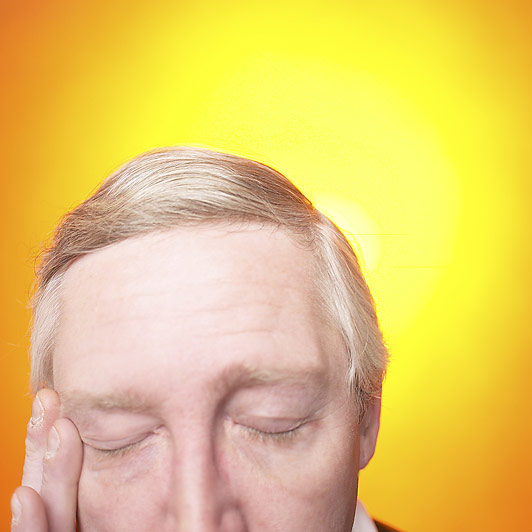
THURSDAY, Dec. 26, 2013 (HealthDay News) — The holidays can challenge the estimated 30 million migraine sufferers in the United States as they try to deal with crowds, travel delays, stress and other potential headache triggers.
Even if you don’t get the debilitating headaches, there’s a good chance you have loved ones who do. Nearly one in four U.S. households includes someone afflicted with migraines, according to the Migraine Research Foundation.
There are a number of ways to cope with migraines during the holidays, said David Yeomans, director of pain research at the Stanford University School of Medicine.
Along with knowing and trying to avoid your migraine triggers, you need to be prepared to deal with a headache. Light sensitivity, changes in sleep patterns, and certain foods and smells — all common migraine triggers — might be harder to avoid during the holiday season.
“When you’ve got family over or are at a loved one’s home, it can be tricky to adjust your normal habit or routine,” Yeomans said in a news release. “What I often suggest is putting together an emergency migraine kit just in case — anti-inflammatory drugs, prescribed migraine medicine, an eye mask or ear buds, and anti-nausea medication. Being prepared can perhaps save the day.”
It’s also important for migraine sufferers to rely on their support network of family and friends.
“Asking the host of the party or gathering if they have a quiet bedroom or place to let the pain subside for awhile may not be a big deal if you make sure they understand where you’re coming from ahead of time,” Yeomans said. “You don’t have to place so much stress on yourself worrying about what others may think if you have a strong support system in place that is flexible and understanding of your needs.”
Cuddling with loved ones can help too, he said.
“When you snuggle up to a loved one, your body naturally produces a hormone called oxytocin, affectionately nicknamed the ‘love hormone,'” Yeomans said. “The remarkable ability of oxytocin to ward off pain is still being explored, and there are treatments … that are currently being studied that utilize this hormone specifically for migraine pain.”
More information
The U.S. National Institute of Neurological Disorders and Stroke has more about migraines.
Copyright © 2026 HealthDay. All rights reserved.

